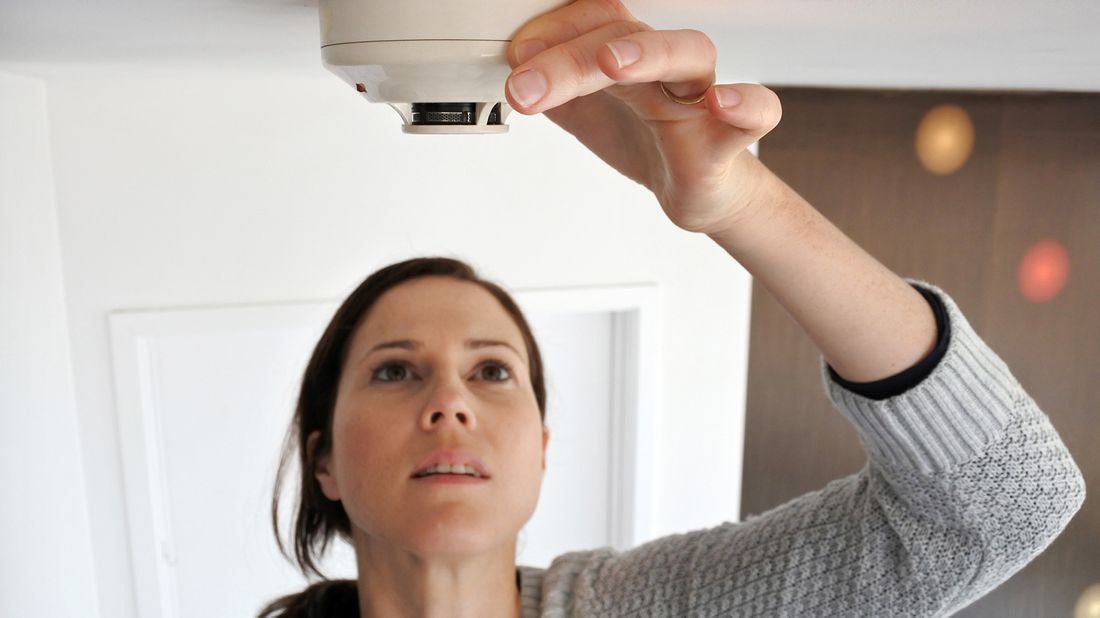The First-Time Homeowner’s Guide to Preventative Home Maintenance

If you’re a first-time homebuyer (congratulations!), you may be unfamiliar with how to take care of a home. While it can be tempting to put off certain tasks until you have to (after all, you’re just getting used to the idea of mowing the lawn), preventative home maintenance can help you avoid costly repairs down the line. Whether you decide to enlist a professional or tackle some on your own, here are five preventative home maintenance tips first-time homeowners should know.
WHAT TO ALWAYS LEAVE TO PROFESSIONALS
Electrical and Plumbing
As a new homebuyer, you likely had a home inspection done to identify any major issues before putting in an offer. And while there’s a good chance these were addressed before you closed, if there are any electrical or plumbing concerns that are still outstanding, these should be your first priority. “A home may have great bones, but a poor digestive system and clogged arteries,” says Tim Curran, a licensed home inspector with Safe Haven Inspections in New York City.
If your home was built in the last 20 years, it’s likely already up to code. But an older home may require some electrical upgrades. “Audits require the attention of a licensed electrician and most home upgrades involving electricity do not fall under the category of DIY projects,” Curran says.
Regardless of your home’s age, “if you notice flickering lights or experience more than one tripped circuit breaker, it might indicate that your electrical system could use some attention.” And while you can readily install your own showerhead or garbage disposal, leave any major pipe issues to a licensed plumber.
The Roof
Worn spots and missing shingles are telltale signs that your home is vulnerable to water, which could damage walls, insulation and electrical equipment. To find a trusted roofing professional (look for one who’s both licensed and insured), Curran advises asking neighbors for recommendations. “Ideally, this person will help with repairs, but they will also set up a maintenance plan to stay ahead of issues before they become emergencies,” he says.
Big Appliance Maintenance
Hot water heaters, furnaces and gas appliances should all be serviced annually by certified contractors, who can also identify any problems early on before they become critical and costly.
WHAT TO REPLACE
Caulk and Grout
Even if you’ve purchased a new or remodeled home, it’s easy to overlook cracks in both caulk and grout, which is why Curran recommends doing a close inspection of all windows and bathrooms. Caulk (the sealant used around windows and baseboards) helps prevent leaks and drafts and can be replaced relatively easily.
When it comes to grout (the material that fills the gap between tiles) pay particular attention to bathroom floor and shower areas. “When you move into a new space, you have no idea to what extent the previous owner cared for the property,” Curran says. “Water has the potential to cause great damage and the best course of action is to assume the grout needs attention.” Any spots where the grout is disintegrated should be replaced, and depending on your level of handiness, you can DIY the job or hire a professional.
HVAC Filters
Regularly replacing filters in your HVAC units will not only help prevent damage to the system, it will also reduce the risk of fire. Curran recommends replacing furnace filters in the fall and air conditioner filters in the spring.
“People who are intimidated by larger mechanical appliances can have a maintenance professional evaluate their HVAC systems and show them how to replace the filters,” he says. If you feel comfortable doing it on your own, HVAC filter replacements can be purchased at most hardware stores.
WHAT TO CLEAN
Gutters
Debris-filled gutters are susceptible to flooding in the spring and ice in the winter, so aim to clean them at least once a year. While you can do this on your own, if your gutters are difficult to access or you’re uncomfortable with heights, it’s best to call a professional.
Dryer Vents
While you probably know to regularly clean the filter inside your clothes dryer, the back vent that leads outside is also a common spot for lint and dust to gather. A dirty vent not only wastes energy but can also be a fire hazard. While you should clean yours at least once a year, if you notice your clothes are taking longer than usual to dry, or that the outside of your dryer is becoming especially hot, it might be time to clean it ahead of schedule.
WHAT TO MAINTAIN
Smoke and Carbon Monoxide Detectors
To ensure the safety of everyone in your household, test both smoke alarms and carbon monoxide alarms monthly and replace all batteries every six months. As for the devices themselves, carbon monoxide alarms can last anywhere from five to seven years, while smoke alarms should be repurchased once every 10 years.
Garbage Disposal
If your home has a garbage disposal, run it every few days and clean it every two weeks to prevent build-up and to keep it running smoothly. If the disposal does become clogged, avoid using commercial drain cleaners or boiling water to clear it up; instead use a pair of pliers or tongs (never a hand) to remove waste that has not been ground up.
Related Articles
Take the next step.
Your advisor will answer your questions and help you uncover opportunities and blind spots that might otherwise go overlooked.
Let's talk






